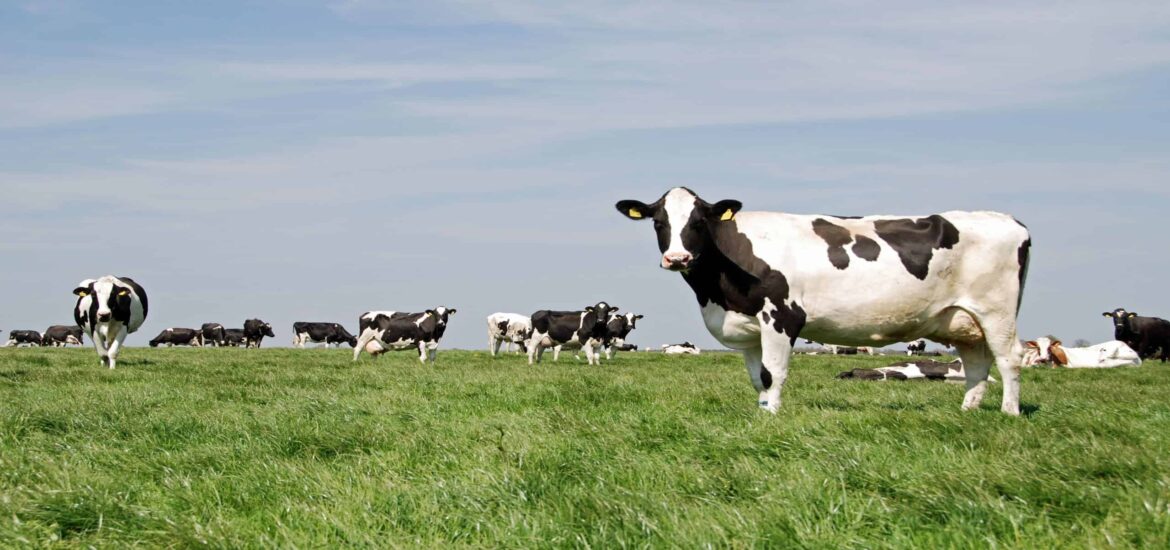“We feel like we have a duty and an obligation to deliver on our goal, to protect and preserve the planet’s resources.”

We need plenty of food to feed the planet’s current population of 7.7 billion people, but there’s a rub. Agriculture is a major driver of climate change with food systems amounting to 34% of all global greenhouse gas emissions.
Of that vast sum, according to a new study in the journal Nature, agriculture and “associated land use and land-use change activities” account for 71% of emissions. The rest come from supply chain activities, including retail, transport, consumption, fuel production, waste management, industrial processes and packaging.
According to the researchers behind the study, CO2 accounts for around half of food-related emissions, while methane makes up 35%, largely from livestock raising (such as cattle), waste treatment and farming. Worse: between 1990 and 2015 emissions from the retail sector grew by three to four times in Europe and the United States. “Food systems are in need of transformation,” the researchers told a news agency. “Our results corroborate previous findings of a significant share of food system emissions.”
And it isn’t just through carbon emissions that agriculture places a strain on the environment worldwide. Agriculture also accounts for a whopping 70% of freshwater use, according to the World Bank. Encouragingly, however, some prominent multinationals are becoming invested in going far greener in their operations, be they their carbon footprints or their rate of freshwater use.
One such stakeholder is Danone, a Paris-based food-products corporation that has set itself apart among multinationals over the past several years with its ambitious environmental commitments. The food and beverage giant has been going out of its way to shift product lines, alter supply chains, and boost its corporate identity in a socially and environmentally responsible manner.
Operating under its logo “One Planet. One Health,” the French multinational seeks to couple the health of people with that of the planet in a holistic way, part of which involves urging customers to adopt not only healthier but also more sustainable dietary habits.
By 2017, the French multinational had 86% of all its packaging and 77% of its plastic packaging made from reusable, recyclable or compostable materials. By 2025, it seeks to have every single piece of its packaging, down to the smallest bottle caps, made the same way from recyclable, reusable or compostable materials. Danone is also working on doing away with plastic straws and non-recyclable shrink film, among other green initiatives.
“We feel like we have a duty and an obligation to deliver on our goal, to protect and preserve the planet’s resources, and to live this purpose in action through our brands,” Deanna Bratter, head of Sustainable Development for Danone North America, explained in an interview with Forbes magazine.
“Purpose and sustainability are integrated into our innovation strategy and we don’t build without it. We have a corporate venture arm called Danone Manifesto Ventures that is an example of how we look through a lens of purpose and strategy,” Bratter elucidated. “Through Danone Manifesto Ventures we develop and partner with entrepreneurs who have the same vision and beliefs as Danone. We are looking to create that social and or environmental change, through business investments and helping create accelerated growth.”

Importantly, the French multinational seeks to lead the way with environmentally friendly practices in the food and beverage industry through a “fully climate-powered business model,” in the words of its former CEO Emmanuel Faber.
A few years ago Danone pledged to become carbon neutral by 2050 after reaching peak carbon emissions by 2025. Five years ahead of schedule, the company already reached that peak of carbon externalities last year with 27 million tons.
The drive has been part of what Danone calls “the food revolution,” which entails refashioning traditional food production models in order to make them far more environmentally friendly. Danone says it also wants to leverage its position as a multinational working in the agricultural sector “to relieve water-stressed environments by helping to preserve and restore ecosystems, wetlands and natural water cycles.”
“Currently, water stress affects more than 2 billion people around the world, a figure that is projected to rise. Ensuring availability and sustainable management of water and sanitation for all are essential to human health and to environmental sustainability and economic prosperity,” the company explains.
By using freshwater sources far more sustainably in its various operations while also ensuring improved sanitation, hygiene and water access for its employees and their communities, the French multinational says it is committed to making a difference in the various countries where it operates. In addition, it has pledged to protect water-related ecosystems and biodiversity in at-risk areas.
To do so, Danone has enacted a freshwater assessment process whereby it identifies at-risk geographic regions at its operating sites as per the Aqueduct Water Risk Atlas of the World Resources Institute to make sure no water is wasted. “We began our assessment with the supply chain for fresh liquid milk. This analysis covered more than 20 countries, involved more than 8,000 collection centers and farmers and is based on projected changes to water stress through 2030,” the company says.
“It enabled us to establish a detailed map of milk suppliers and farmers dealing with challenges of resource availability. In 2019, the identification of water risks was also implemented for other Danone’s agricultural commodities,” Danone adds.
Danone isn’t the only food-and-beverage heavyweight seeking to make positive environmental impacts. Nestlé, a Swiss multinational, has just pledged to invest $3.6 billion over the next five years into its ambitious goal of cutting its emissions by half within a decade before reaching net-zero emissions by 2050. Well before that date, within just five years, Nestlé wants to ensure that all the electricity at more than 800 global sites comes from renewable sources.
Simultaneously, the Swiss company aims to achieve a target of zero environmental impacts in its broad-based operations globally through improved freshwater management, zero waste for disposal, and scaled-up sustainability of resources.
“Nestlé is really showing us a glimpse of how future business is going to be approached — companies are going to have to become greener, more transparent and ultimately more sustainable. Other companies should take note,” Ryan Whittaker, a consumer analyst at GlobalData, told Food Dive.
https://ift.tt/3sbSZy1
food

Tidak ada komentar:
Posting Komentar